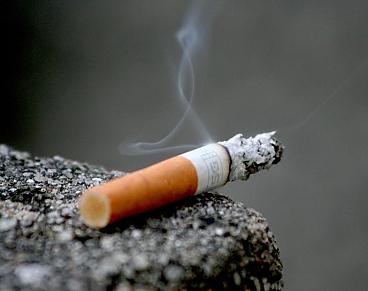European Commission must make contacts with tobacco lobby public
European Commission must make contacts with tobacco lobby public

European Ombudsman Emily O'Reilly today published her recommendations regarding the European Commission’s contacts with the tobacco lobby, calling for a proactive policy under which all meetings and reports on such meetings would be placed on the Commission’s website. Commenting on the recommendations, SP Euro-MP Dennis de Jong said: 'Dutch Commissioner Frans Timmermans promised us that he would quickly make the Commission more transparent, but he has also refused up to now to make public all data regarding meetings with the tobacco industry. The Ombudsman has made mincemeat of this position, which she argues is in conflict with the rules established by the World Health Organisation (WHO). The Commission, moreover, should know better. Recently Maltese Commissioner John Dalli had to step down on suspicion of corruption related to the tobacco industry. Furthermore, the Commission works closely with the tobacco industry to combat cigarette smuggling. So there’s every reason to publish all such contacts on the Commission’s website, as the Ombudsman asks them to do.’
The Ombudsman’s recommendation followed a complaint from the lobby watchdog Corporate Europe Observatory. They had asked for the details to be made public, but the Commission did not find this necessary, because the department most involved, the Directorate General for Health (DG-Health) was already doing it, while everyone could after all request the documents through the ‘Wobbing’ website (named for a Dutch journalists’ slang term meaning “getting documents through Freedom of Information legislation.”). “The argument that the tobacco directive falls under the competence of DG Health, just doesn’t hold water,” says De Jong. “Contacts with the tobacco lobby extend to many other services. We’re talking intensively right now in the EP with Commission vice-president Kristina Georgieva about the many agreements the Commission has made with the tobacco industry for combatting counterfeiting and smuggling of cigarettes. As for what goes on in these meetings, they say they don’t want to give anything away, because the negotiations are still proceeding. You certainly can’t call that transparent. The same goes for the way in which these agreements are put into practice by OLAF, the European anti-fraud service, about which we are given scant information. So it isn’t sufficient simply to know what’s said when DG Health meets with the tobacco industry; all the Commission’s different services must make such information public.'
In 2003 the WHO adopted the Framework Convention on Tobacco Control (FCTC), to which the European Union is party. The FCTC represents an attempt to reduce the influence of the tobacco lobby in a number of ways, including by reducing lobbyists’ contacts with governments and through engagements ensuring maximum transparency when it came to such contacts. ‘All the Commission’s fine words notwithstanding, this is the umpteenth example of their lax approach. We are still waiting on Timmerman’s proposals for an obligatory transparency register. Moreover, a study I had done in the area of budgetary control showed that the hundreds of advice groups appointed and consulted by the Commission are still not balanced in their membership. It would be a fine thing if the Commission matched deeds to words.’
